If you’re hearing strange noises in your house and wondering whether you have a mouse problem, you’re in the right place.
This article covers all you need to know about noises that mice can make in your home.
Mice Noises – The Intro
Mice are small rodents with pointed noses, fur-covered bodies, large ears, and long tails. Common varieties are the field mouse, house mouse, and dormouse.
Although many people refer to mice and rats as the same, they differ. Rats are generally larger and more aggressive. Both are dangerous to your home and health.
Mice aren’t that different from people – they’re communal creatures. They like to vocalize their emotions and talk to each other to find water, food, and shelter. They emit a variety of sounds that may include squeaks, gnawing sounds, and soft scampering sounds.
They can even sing!
Their squeaks will change pitch and frequency depending on what they’re attempting to communicate. Their noises are louder when they find food and more frenetic during courtship.
The sound of mice in your walls is something to fear, so let’s look at what noises you may hear if you have a mouse infestation.
5 Common Noises That Mice Can Make

Scurrying
If you’ve heard scurrying noises in your home and are wondering what the cause could be, mice are the most likely source. You’ll typically hear them before bedtime and late in the night. You’ll occasionally hear them during the day when the house is tranquil.
They’ll often make light, soft, scuffling sounds as they move around your house. The sounds are made when their bodies brush against surfaces, and their nails dig in to gain traction.
The first you hear such noise, you’ll likely think it’s a bigger creature than a mouse. Sometimes imagination will run wild, especially when you hear the sound at night; it’s understandable.
Sometimes, mice sounds will echo across the spaces of your house, giving the impression that they’re from something bigger.
They can sound surprisingly intimidating.
Scratching
Scratching is another sound associated with mice and is one of the most common signs of a rodent in your home. You’ll hear scratching as mice climb up your walls and travel through the insulation in your house.
These pests also search for nesting materials on a near-constant basis. Such activity creates scratching noises as well.
Scratching is one of the common sounds you will hear from rats and mice at night.
Gnawing/Chewing
Mice have four incisors that grow incessantly throughout their lives. For this reason, they must constantly chew and gnaw to keep their teeth at the proper size. This is true for mice and rats.
If you have mice in your home, you might hear sounds similar to gnawing coming from behind your walls or attic.
Mice can chew through plastic, wood, rubber, soft vinyl, and even aluminum and fiberglass screening. They will also chew through concrete, but that’s only if it’s not fully cured.
That said, there are a few materials mice will avoid, like steel wool. It’s not because they can’t chew through it, but they prefer to leave it alone. It is because the steel wool has sharp edges that are abrasive to their noses. Unfortunately, they often grab it with their feet and pull it out of a sealed opening.
Note: It’s well-known that mice infestations can cause house fires. They like to chew through electrical insulation, which leads to short circuits.
Gnawing is the mice sound that I fear the most!
Squeaking
It is not just the mouse sounds they make as they scurry and run through your home, they also make noises even when they are still!
Mice squeak to communicate with other mice, express emotion, and reward each other- a mouse squeaking is like their own language.
You can’t hear all the unique pitches and tones in mouse squeaks, though (mice can make audible and ultrasonic sounds). That’s where their big ears come in useful.
Squeaks are more frequent and intricate during courtship. A male mouse will emit a complex squeak pattern when pursuing or mating with a female. After babies are born, they will squeak for their mother when she leaves and returns to the nest.
Female mice squeak when they’re close to other female companions.
Whenever you hear a squeak, it means they’re talking to other mice close by. If you hear them at night, they’re probably talking to other mice in your home. Contrary to what you may believe, that single mouse you think you have is probably one of many others; you have a rodent infestation on your hands.
Mice reproduce fast, and they’re good at hiding. If the mice have a reliable food source and a warm place to build nests, they’ll multiply and thrive. Mouse chatter may sound cute to some, but it spreads illness and disease. When mice scurry across the floor, they spread all kinds of bacteria that will end up in your food. They also leave droppings all over the place. Mouse poop is dangerous. If you try to sweep or wipe it up, it will release a contaminant that can cause breathing problems in people with respiratory illnesses.
Brushing
This is the most difficult to hear out of all the mouse sounds on this page!
Suppose you get close to a mouse, really close. Stay quiet, you may hear the mouse cleaning itself. It is a bit like a soft brushing sound.
They might be pests, but they are trying to stay clean(ish).
Can you hear mice squeak?
Yes, you can hear these rodents squeak sometimes, but there’s a lot more that’s inaudible. A mouse’s sound, such as a squeak, is difficult to hear.
Rats, mice, and other rodents emit ultrasonic sounds to attract mates and defend their territories. These vocalizations have frequencies that range between 30-110 kHz, far beyond the capabilities of the human ear.
What noise do mice make at night?
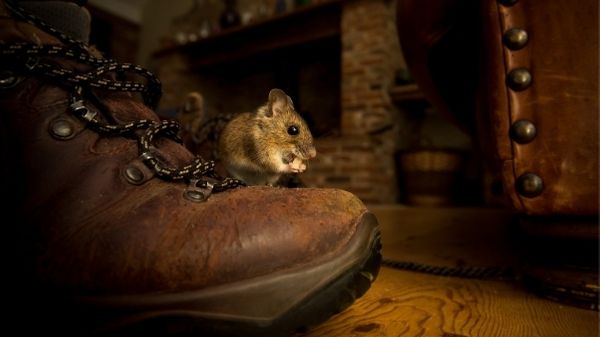
At night, and if fact, during most of the hours after sundown, you may hear one of the following noises:
- Scratching
- Scrruying
- Gnawing
- Squeeking
You will hear those noises in one of the following places:
- Attic
- Walls
- Floors
- Ceilings
- Behind Kitchen cupboards
Rodents like to move a lot more in the hours after sundown for two reasons; 1. they are primarily nocturnal, and 2. They feel more protected when it is dark because fewer predators can see them.
What noise do mice make in walls?
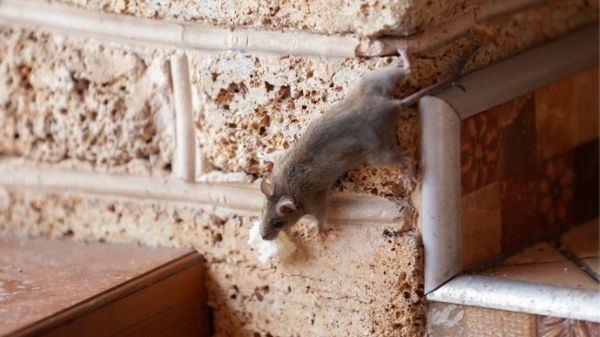
Keep track of any noise that you hear in your walls, especially the following list, because these are the most common:
- Scratching
- Scurrying
- Gnawing/Chewing
- Scraping
This list is very similar to the other lists on this page for a good reason. Mice noises are all very similar, no matter where they are in your home.
Regular mouse noises such as those above may indicate a rodent infestation. Time to find those pests and get rid of them!
Conclusion
Mice can gain access to your home in several ways. You must understand mouse noises that indicate a possible infestation around your property. The sounds on this page are all signs of a rodent infestation you must address.
Check around your home for mouse entry points. Once you cover those off, you are in a much better place to battle the infestation.
Common mouse entry points include:
- Wire and utility pipe entries
- Old siding
- Cracks in your house’s foundation
- Spaces between building materials
- Chimneys and roof vents
While these noises are signs of a rodent infestation, you must remember that it is not just mice that make noise in your home. Rats, squirrels, and other rodents sound like house mice and also have the ability to gain access to your home and use it as a base.
If you are unsure which rodent you are dealing with and do not fancy taking on the battle yourself, then contact a pest control company.
If you take it on yourself, then good luck!

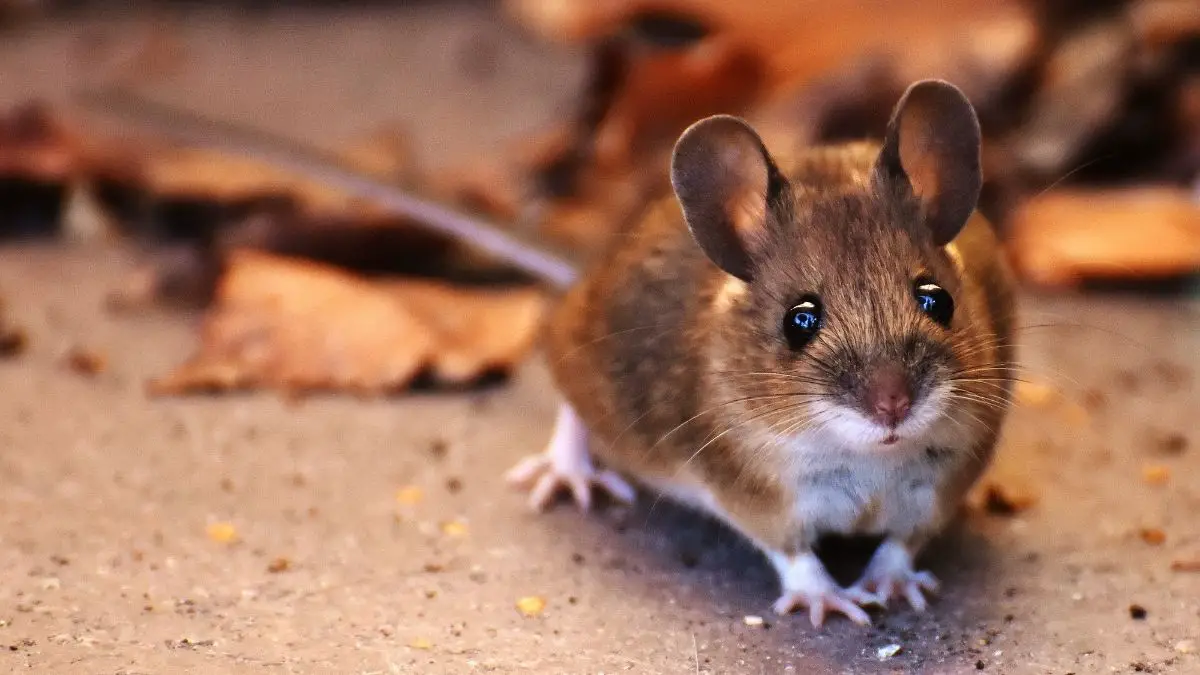

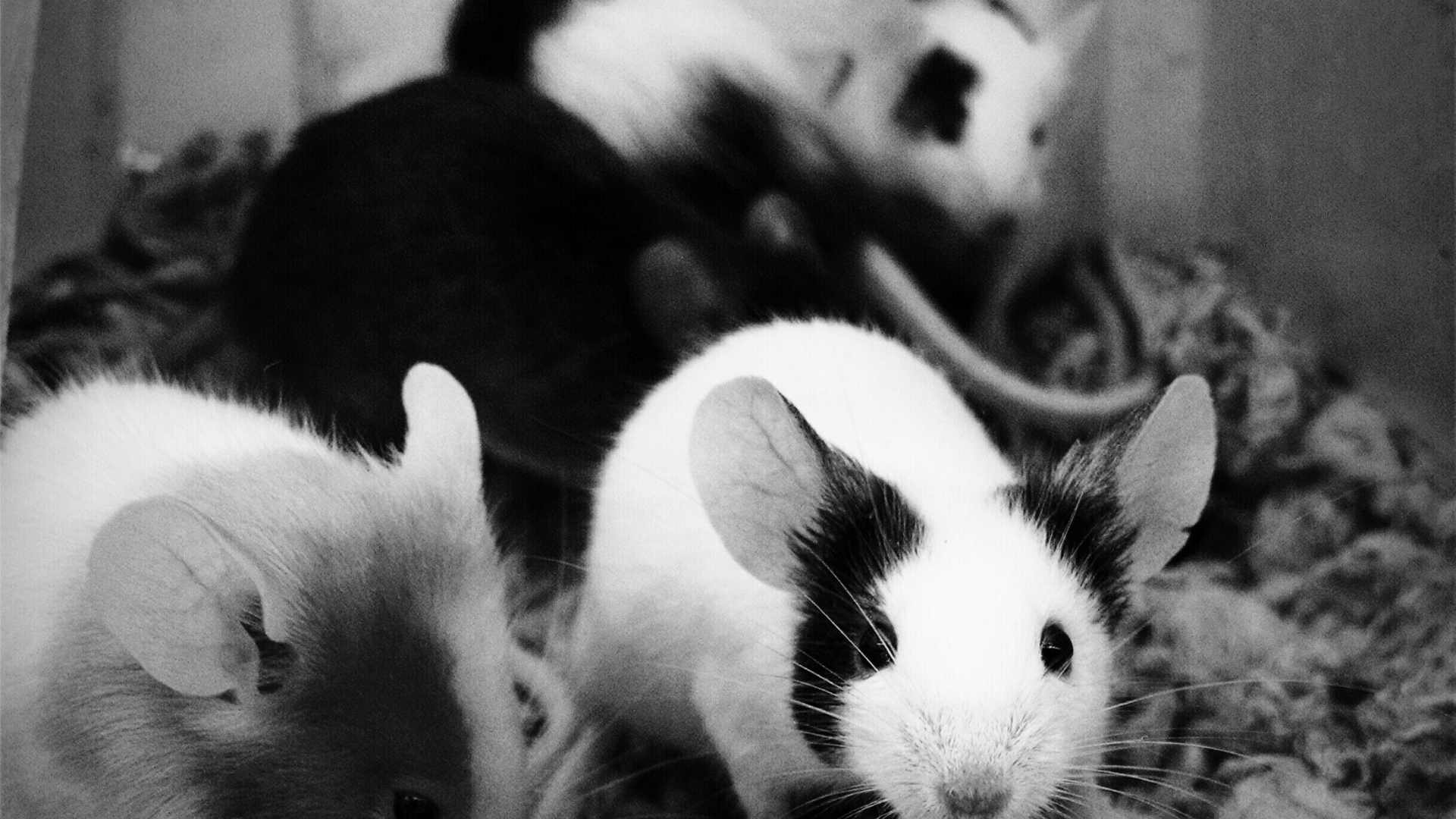
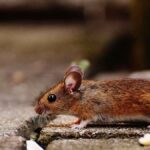




Thank you so much for telling me where to listen out for rodent noises, especially around the floors and walls. I feel like these are the prime areas where I would find the rats that my son has been telling me are scurrying around our house, but I can never seem to find them myself. Once I give these areas a listen and confirm that there are indeed rats in my house, I’ll call a rodent treatment expert right away.